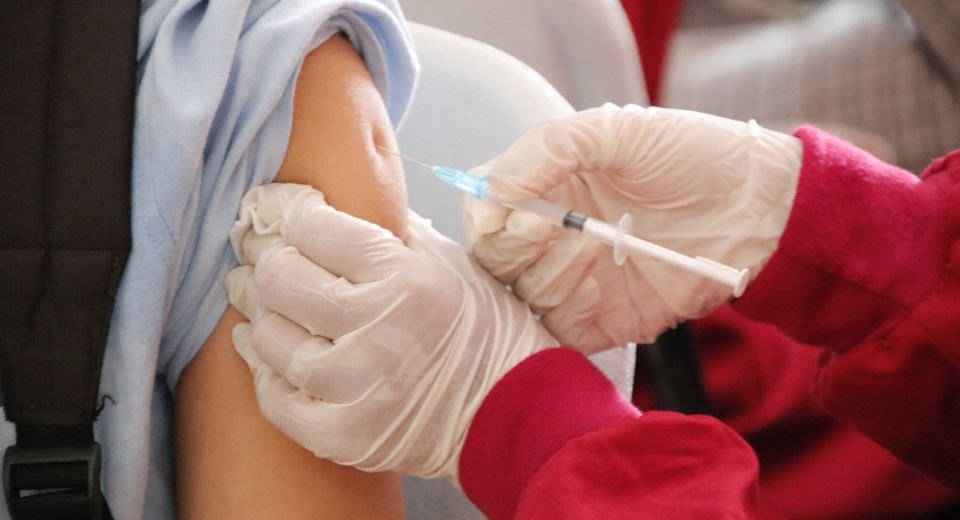HQ Team
August 14, 2025: The Annals of Internal Medicine has refused to retract a recent study that refuted any connection between aluminum exposure in childhood vaccination and 50 chronic conditions, as demanded by U.S. Health and Human Services (HHS) Secretary Robert F. Kennedy Jr.
The journal published a Danish nationwide cohort study titled “Aluminum-Adsorbed Vaccines and Chronic Diseases in Childhood,” in July of this year. The study analyzed data from over 1.2 million Danish children born between 1997 and 2018, tracking their health outcomes until the end of 2020. It found no association between aluminum exposure from early childhood vaccinations and an increased risk of 50 chronic conditions, including autoimmune diseases, allergies, and neurodevelopmental disorders such as autism and asthma.
However, Kennedy Jr. criticized the study in an opinion piece on TrialSite News on August 1, calling for its retraction. The Annals has said that it has no plans to retract the study, according to Reuters.
Background of the study
Aluminum-based adjuvants have been used in non-living vaccines since 1926 to enhance immune responses. However, concerns about their potential adverse effects persist. In July 2025, researchers from the Statens Serum Institut in Denmark published a study in the Annals of Internal Medicine, analysing nationwide registry data to assess the relationship between cumulative aluminum exposure from early childhood vaccinations and the risk of autoimmune, allergic, and neurodevelopmental disorders.
The study included 1,224,176 children born in Denmark between 1997 and 2018, with a median follow-up age of 5 years. Only 15,237 children (1.2%) had not received aluminum-adjuvanted vaccines by age 2. The researchers found no association between cumulative aluminum exposure from vaccinations during the first two years of life and an increased risk of any of the 50 chronic conditions evaluated. For each 1-milligram increase in aluminum exposure, the adjusted hazard ratios were 0.98 (95% CI, 0.94 to 1.02) for autoimmune disorders, 0.99 (95% CI, 0.98 to 1.01) for allergic/atopic disorders, and 0.93 (95% CI, 0.90 to 0.97) for neurodevelopmental disorders. The upper bounds of the 95% confidence intervals were inconsistent with relative increases greater than 10% or 30% for most outcomes, suggesting that the risk of these conditions was unlikely to be increased due to aluminum exposure.
The study concluded, “This nationwide cohort study did not find evidence supporting an increased risk for autoimmune, atopic or allergic, or neurodevelopmental disorders associated with early childhood exposure to aluminum-adsorbed vaccines.”
Criticisms and responses
In his opinion piece, Kennedy Jr. criticized the study for excluding children who died before age 2 and not using unvaccinated children as a control group, calling it “a deceitful propaganda stunt by the pharmaceutical industry.” He argued that the study’s design was “meticulously crafted not to detect harm.” In response, the study’s lead author, Niklas Worm Andersson, MD, PhD, and colleagues explained in the Annals of Internal Medicine’s comment section that key outcomes like autism and asthma “cannot be reliably diagnosed in infancy,” which is why children under 2 years old were excluded from the main analysis. However, a supplementary analysis starting follow-up at 14 months yielded results similar to the main analysis.
Regarding the lack of an unvaccinated control group, the authors stated that only 1.2% of children in Denmark were unvaccinated, making meaningful comparisons impossible. Instead, the study assessed the dose-response relationship within the range of aluminum exposure observed in Denmark’s early childhood vaccination program during the study period. This approach aimed to reduce bias and improve statistical precision. The authors also noted that unvaccinated children may differ from vaccinated children in lifestyle factors that are difficult to adequately control for. Senior author Anders Hviid, MSc, Dr.Med.Sci, added that the study leveraged variations in aluminum exposure due to changes in vaccine types and brands in the program, which can be considered “quasi-random.” The researchers also controlled for numerous factors, including socioeconomic variables. Hviid stated that the critiques raised by Kennedy Jr. were not substantive and that additional analyses addressing these critiques supported the original paper’s results, interpretation, and conclusions.
Journal’s position and expert opinions
The editor-in-chief of the Annals of Internal Medicine, Dr. Christine Laine, told Reuters that there was no reason to retract the study. While the journal plans to address criticisms on its website, it does not intend to directly respond to Kennedy’s article, which was not submitted to the journal. Laine noted that while some of Kennedy’s critiques highlighted acceptable study limitations, they did not invalidate the findings, and there was no evidence of scientific misconduct. Other experts also weighed in.
Amesh Adalja, MD, FIDSA, a senior scholar at Johns Hopkins Bloomberg School of Public Health, stated that he did not identify significant weaknesses in the study. Although it was not a randomized controlled trial and did not examine individual cases, the conclusions of this and other similar studies remain valid.
Aluminum adjuvants enhance vaccine effectiveness, and individuals are exposed to far more aluminum through their diet than through vaccines. Hviid emphasized that the aluminum salts in vaccines are present in minute amounts and are not metallic. The best available evidence suggests that they do not cause serious health issues in early childhood, such as autism or asthma.
Significance of the study
The study’s findings reinforce the safety of aluminum-adjuvanted vaccines and should help alleviate public concerns about vaccine safety. However, the controversy sparked by the study also highlights the ongoing challenges in vaccine communication and the need for continued research to address public doubts.
The vaccine concerns have led the Trump administration cancelling almost $500 million in contracts to develop mRNA vaccines. The vaccine overseeing body BARDA, is terminating 22 contracts with university researchers and private companies to develop new uses for the mRNA technology.
